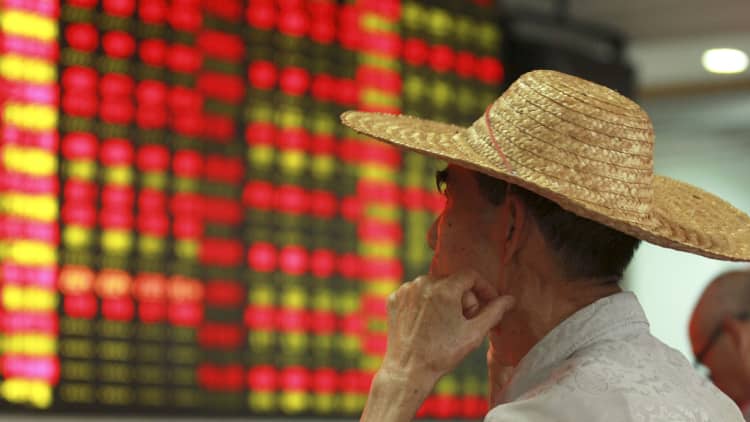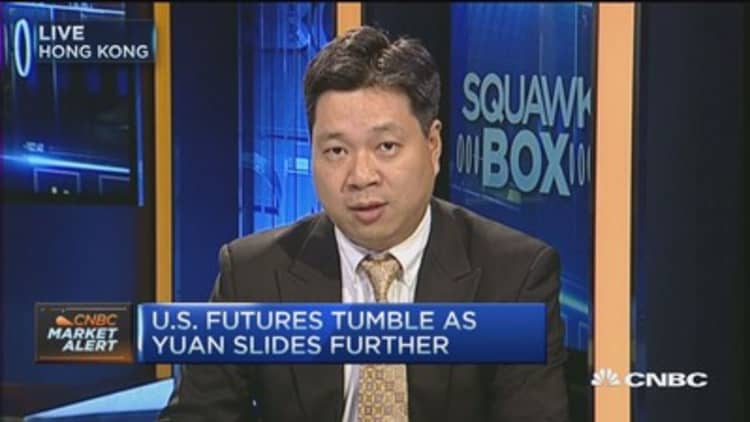
The Federal Reserve may raise interest rates in September, but wih great difficulty with much of the world lowering rates and devaluing currency, Nuveen Asset Management's Bob Doll said Wednesday.
China's surprise decision to devalue its currency on Tuesday presented the latest challenge to the Fed's anticipated liftoff at a time when Europe and Japan are easing monetary policy. The falling Chinese yuan has dragged down other growth-linked currencies, including Australia and New Zealand.
"Everybody knew September was a more than 50 percent chance the Fed was going to go," Doll told CNBC's "Squawk Box." "You've got to wonder, is this going to make it less than 50 percent? Are they really going to listen to things outside the U.S.?"
The Fed has held its benchmark interest rate near zero since December 2008. The CME FedWatch tool—which tracks market reaction on potential changes to the fed funds target rate—showed a 45 percent likelihood of a rate hike in September, down slightly from earlier this week.
Read MoreDollar drops as China move raises doubts over Fed hike timing
The devaluation and China's recent intervention in its stock markets following a 30 percent correction underscore a massive growth problem for the country, said Doll, Nuveen's chief equity strategist. China is currently grappling with consumption challenges, mounting inventories and net capital outflows, he noted.
That slowdown will affect Asia-Pacific first, Europe next, and the United States the least, he said.
"The optimist in me says, don't forget the United States is 87 percent a domestic economy, which is generally doing better. The consumer is doing a little better. Jobs have improved," he said.
"I don't want to take anything away from the concern. It's a legitimate concern. If this develops into a currency war, we've got issues. There's not question about it," Doll said.

Haibin Zhu, chief China economist for JPMorgan Chase, told "Squawk Box" that China is not the first mover, but the last man standing following currency depreciation in Europe, Japan and emerging markets.
The yuan has appreciated significantly in the last 12 months because it is linked to the strengthening dollar, he said. China's first reason for letting the yuan float more freely, leading to its depreciation, is to reduce pressure on China's exports.
A stronger currency makes a country's exports more expensive and less attractive to foreign buyers.
Read More Where now for the yuan? Only the PBoC really knows
China is also moving toward a more market-based regime by decoupling the yuan from the dollar, Zhu said. China has long sought to establish the yuan as a reserve currency, but financial organizations such as the International Monetary Fund have said the government must relax control of the yuan and allow market forces to play a larger role in determining its value.
While China allowed the yuan to slide for two days, the People's Bank of China stepped in to support the yuan in the final minutes of trading Wednesday as the yuan dropped 2 percent against the U.S. dollar, the Dow Jones reported.


